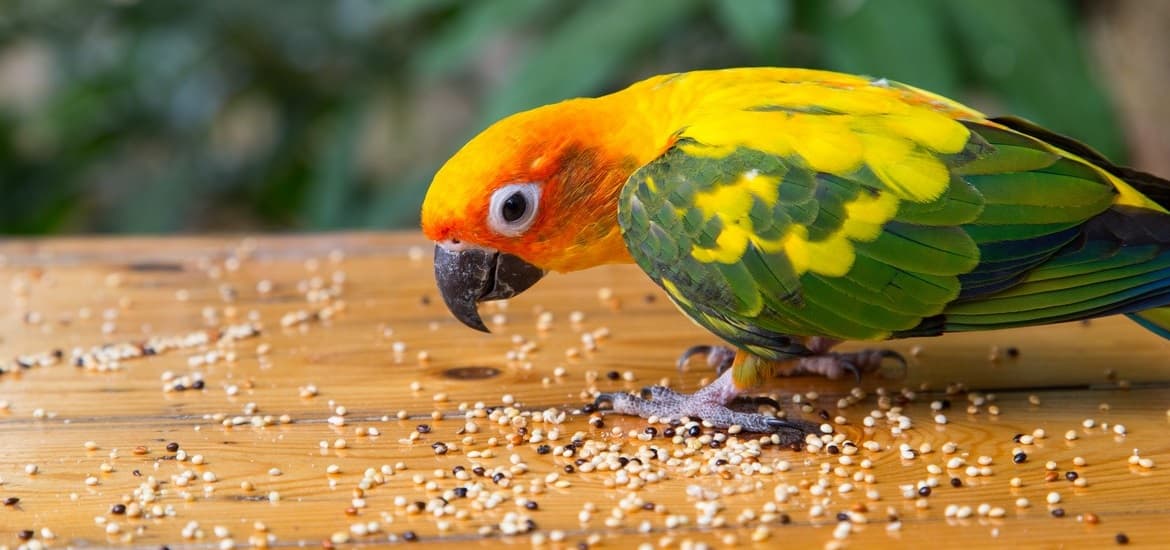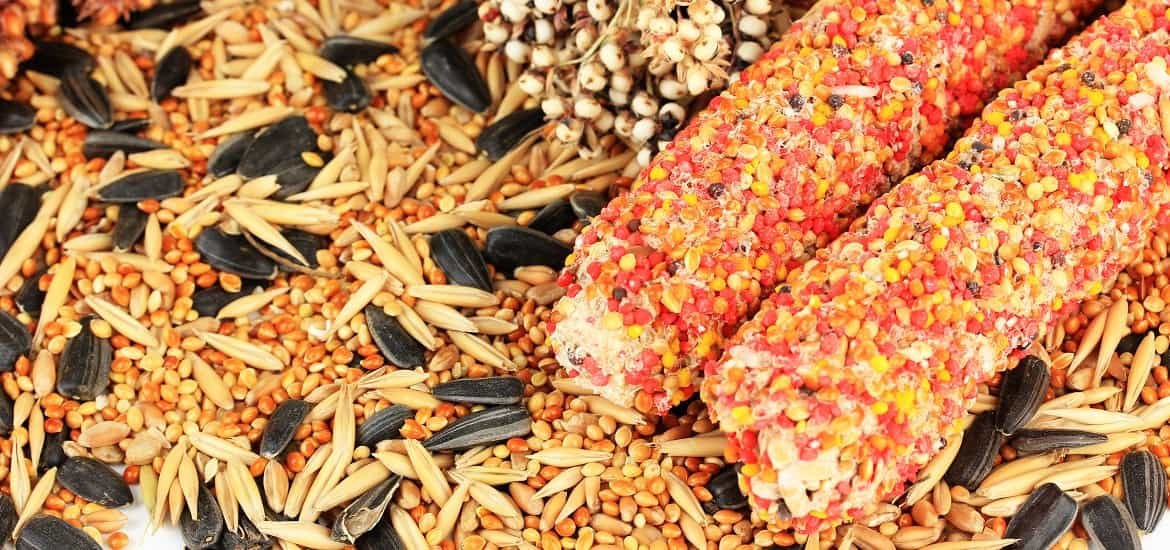Sep 29, 2020, 6:31 PM
A bird’s diet has a major impact on its life and health, as a balanced diet can help in avoiding health and behavioral problems in avian creatures. Similar to the variety of bird species that exist, there is also an increased diversity among their dietary habits as well. Based on these differences, the birds need to be fed an adequate amount of nutrition as per their preference and nutritional needs.

Birds’ Diet Variety
Based on their dietary differences, pet birds can be majorly classified as florivores, that feed on plant-based items, and omnivores, who feed on plants as well as animal-based food. The parrot family, Psittacine, primarily belongs to the florivore category. Plant-based foods types further provide diversity in birds’ diet as granivores and frugivores. Granivores feed on plant products such as grains, seeds, etc., whereas frugivores consume fruits. Thus, it is essential to provide specific food types in adequate amount to provide the necessary amount of nutritional value to pet birds and keep them healthy.
Nutrition for Seed-Eating Birds
Among the seed-eating variety, the pet birds might have imbalanced nutrition due to various factors such as feeding on seeds carrying lower nutrition values and higher calories, leading to overweight due to less energy consumption or limited diet. These issues can be tackled with the use of formulated foods such as those provided by Harrison’s Bird Food. Each of the products offered by Harrison’s Bird Foods is certified organic and non-GMO by International Certification Services (ICS) and meets the requirements set forth by the USDA National Organic Program (NOP).
Different bird variety requires varying levels of nutrition value, as Macaws and Golden Conures require higher fat, unlike Cockatoos and Amazons that require lower in fat and higher in protein. Formulated foods are selectively made, including the perfect level of nutrition necessary for the specific type.
The high vitamin, minerals, and carbohydrate level of vegetables make it a necessary component to be included in the birds’ diet – at least 15-30% of the overall diet. Whereas, fruits should be around 5% of their diet to provide the perfect level of sugar and hydration through moisture.

Trick the Birds into Eating Healthy
As birds tend to be a highly selective eater, feeding them might sometimes need a next-level approach. In order to appeal to their selective nature of eating based on the sight, texture, and taste of the food, it is apt to provide a wide variety of fruits and vegetables to balance their nutrition intake. When it comes to feeding, simply putting the food in front of them is not enough; one can use toys and other methods to enliven the feeding times. Also, be sure to provide the bird only what needs to eat in a day. By doing so, you’ll be able to monitor his/her daily intake adequately.
